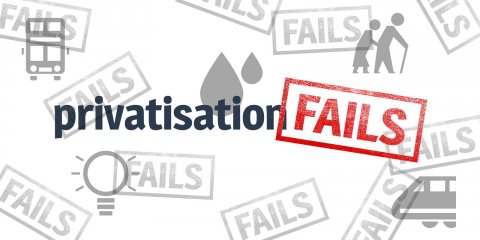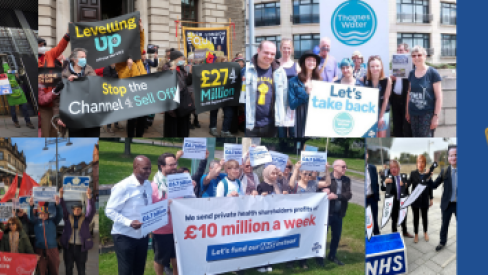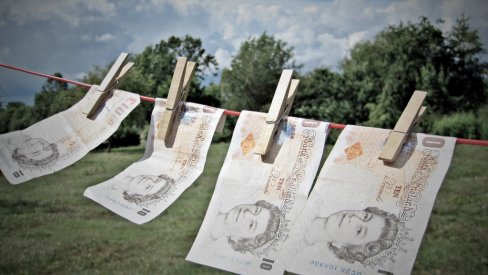
5 October 2017
We’ve never seen anything like this. We’ve been working to shift the debate around public ownership and privatisation for the last four years. Now, public ownership is hugely popular, and supporters of privatisation have been thrown into a panic.
It looks like the ideology of the last 30 years is beginning to crumble. Privatisation has failed, and we have the proof.
How times have changed:
A few short months ago, before the general election, we laid out the policies we wanted parties to commit to in their general election manifestos – on energy, water, rail, buses, social care, the NHS, education, council services, national assets and creating new public services.
We wanted to bring together and summarise great research showing just how achievable public ownership is. So we wrote our guide to public ownership - a 'how-to' instruction book for taking control of our public services at a national, regional and local level. You can read it here.
We said then that "these ideas have the potential to unite the country." And they have.
We all want public ownership:
Thanks to polling from rightwing thinktank the Legatum Institute, we now know that:
-
76% of the public want to see public ownership of the railways. Rail franchises could be brought in house as they expire and public ownership of our railway would save £1.2 billion a year.
-
77% of the public want to see energy (electricity and gas) in public ownership. Local energy supply companies can be created by councils, like Robin Hood Energy and Bristol Energy. Buying back the National Grid and energy distribution networks would pay for itself in 10 years.
-
83% support public ownership of water. Water company shares could be bought back. Most water company investors are abroad. Pensions could be protected if compensation was less than market value.
So what now?
We’ve launched #PrivatisationFails- a new resource to show the failures of privatisation across all sectors. The evidence after 30 years of the privatisation experiment is undeniable. Our new resource gives an overview of recent private company failures in the NHS, schools, care, social security, buses, rail, energy, water, prisons, probation and council services. This resource provides ammunition that we will need to win the battle of ideas.
You can use this resource to show fans of privatisation - whether they be your friends and family, or local councillors and MPs - that we need public ownership, now. The resource contains more evidence than you could ever need to convince people around you of the failures of privatisation, in all sectors, all in one place. Get out there and talk to people who disagree with you - discuss, argue, persuade.
Let’s lay privatisation to rest, and get on with creating a democratic, accountable, publicly owned future.











Comments
frank watkinson replied on Permalink
I have been against privatisation right from the beginning so i'm glad this is gaining momentum ,also i have often thought that we could all gain by a government run motor insurance scheme as premiums are getting ridiculous especially for young drivers.
Susan raisbeck replied on Permalink
All the other countries in Europe have state run utilities. Most of them own our railways and supplement their railways with the profits they make from our privatised railways.
Joe Kelly replied on Permalink
The companies you say we can buy back, why, they have made excessive profit over the years, we never agreed to the sale of these companies in the first place, just repossess.
Richard Dennis replied on Permalink
Those national assets were ours in the first place and paid for and sustained by the public before being sold at a loss to faceless speculators.
My local hospital is now having expensive properties being built on NHS land and it makes you think how many times this is being repeated all over the country.
The same with a high school near to me also having properties being built on its land which is another head turner.
George W Fogg replied on Permalink
Would you buy back your stolen car from the thief that took it? Privatisation was and remains theft. I could not and would not buy shares in services that I already owned. Those who did were motivated by selfish greed and should in no way be compensated; indeed they should be compelled to pay back any profits they made from the theft they committed
Add new comment